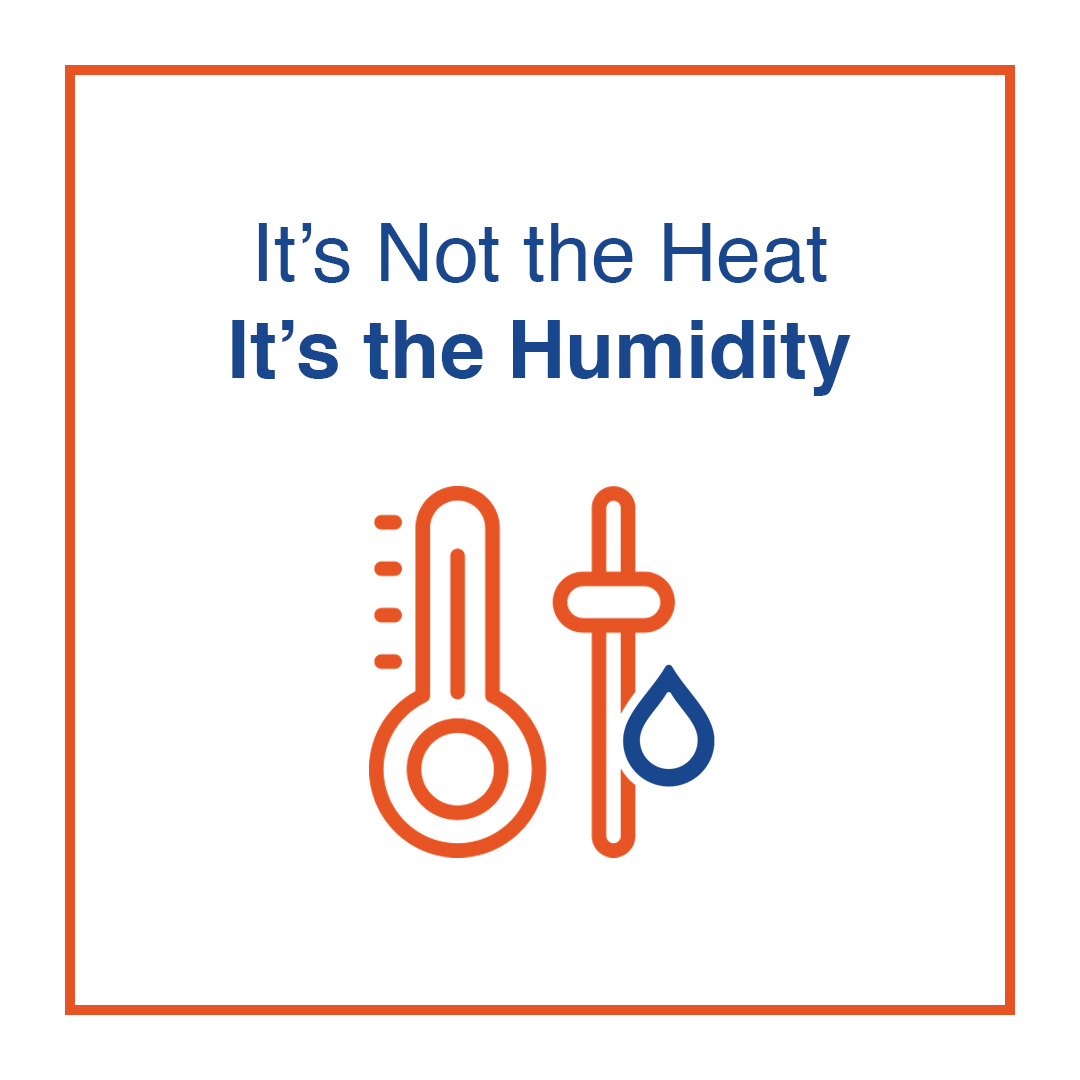How Humidity Affects Comfort and Indoor Air Quality
If you live in eastern North Carolina, you’ve probably uttered the phrase, “It’s not the heat, it’s the humidity.” When walking outside during the summer months, we are immediately greeted by a wall of hot, humid air. This extra moisture in the air, humidity, is not something we want to feel in our homes. Air conditioning regulates indoor humidity so that the air in our home stays cool and dry.
How does air conditioning help control humidity?
- Warm air inside your home passes over the evaporator coil of the AC unit
- The evaporator coil contains a cooling agent called refrigerant
- Refrigerant absorbs heat and moisture from the air
- Condensation drains into the condensate pan under the evaporator coil
- Cool, dry air is blown back through your home
Keeping the humidity level at bay can reduce the strain on your unit. Humidity holds heat, so if there’s an excess of humidity in your home, your AC unit has to work harder to remove it. Ideally, the humidity level in your home during summer months should be between 30 and 50. Staying within this range helps ensure healthy indoor air quality.
If you notice condensation on the windows, a musty smell or a feeling of dampness in your home, these could be signs that the humidity level is too high…give the professionals at Advance Mechanical a call, we will help assess the issue and find the best solution for you and your home!



 (252) 355-9191
(252) 355-9191